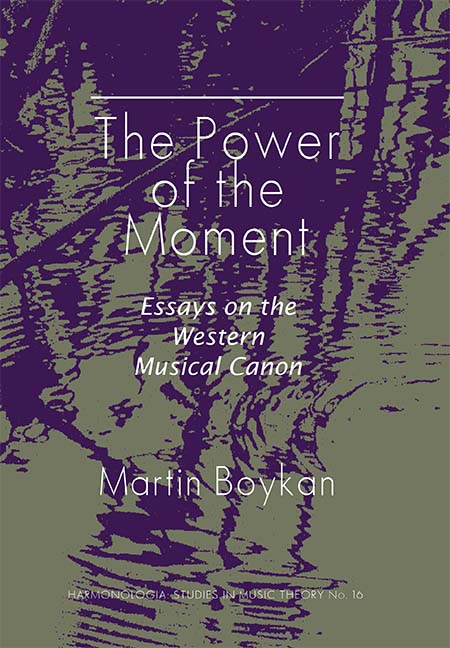Book contents
- Frontmatter
- Contents
- Acknowledgements
- Martin Boykan Biography
- I Introduction: Some Words About Theory
- II The Power of The Moment: The Hammerklavier and the Archduke
- III Voice and Piano in Dialogue: Seven Songs from the Winterreise
- IV A Recurrent Tonality: The Meaning of the Kiss in Verdi's Otello
- V Resetting the Clock: The Scherzo of Beethoven's Fifth
- VI The Power of Every Moment: Musical Continuity in J. S. Bach
- VII Coda
VII - Coda
- Frontmatter
- Contents
- Acknowledgements
- Martin Boykan Biography
- I Introduction: Some Words About Theory
- II The Power of The Moment: The Hammerklavier and the Archduke
- III Voice and Piano in Dialogue: Seven Songs from the Winterreise
- IV A Recurrent Tonality: The Meaning of the Kiss in Verdi's Otello
- V Resetting the Clock: The Scherzo of Beethoven's Fifth
- VI The Power of Every Moment: Musical Continuity in J. S. Bach
- VII Coda
Summary
As we look back over the pieces we have been considering, it is easy to grow nostalgic for a time when music had a restricted harmonic vocabulary, when the unfolding of a melody was guided by clear principles of voice-leading, when a few basic forms, like approved cultural objects, were available for general usage. The history of music in the twentieth century is in fact drenched in this nostalgia. After the enormous excitement of the opening years of the century, the specter of a dying civilization raised by the First World War forced the enthusiasm for innovation and experimentation to come to terms with a rappel à l'ordre, a last-ditch effort to save the past. And so we had Hindemith's attempt to reconstitute tonal theory, stylistic paraphrases in Stravinsky and his followers, the 12-tone method, originally conceived by Schoenberg as a way of structuring atonality for the revival of classical forms. And as the century wore on, and ideology followed ideology, the tradition continued to exercise an attraction that was not always easy to resist; along with music that proclaimed its modernity, there was neo-romanticism, music constructed out of quotations, a second attempt to formulate a theory of functional tonality for the modern world—this time based on a linguistic model— and any number of systems designed to hold a piece together by means of pre-compositional constraints, parallel to, even if different from those attributed to tonal music.
Nostalgia, as a state-of-mind, is of course intrinsically unreliable; in casting a sentimental haze over the past, it cannot help distorting it. If you long for tonal forms as they are generally described in textbooks, you might envy the composers of the past for their helpful ready-mades, but the fact is that sonata-form in the hands of Haydn is so variable as to be unpredictable, and I have only found one fugue in the Well-Tempered Clavichord that actually observes the rules set forth in the authoritative treatise of Gedalge. And if you imagine that the “grammar” of functional tonality insures a level of coherence, you will be surprised by quite a few pieces from the eighteenth or nineteenth century—some even written by composers of distinction.
Discovering rules for functional tonality was a popular sport in the twentieth century, and a few became so ingrained that they can now be said to be almost proverbial.
- Type
- Chapter
- Information
- The Power of the MomentEssays on the Western Musical Canon, pp. 105 - 107Publisher: Boydell & BrewerPrint publication year: 2011



